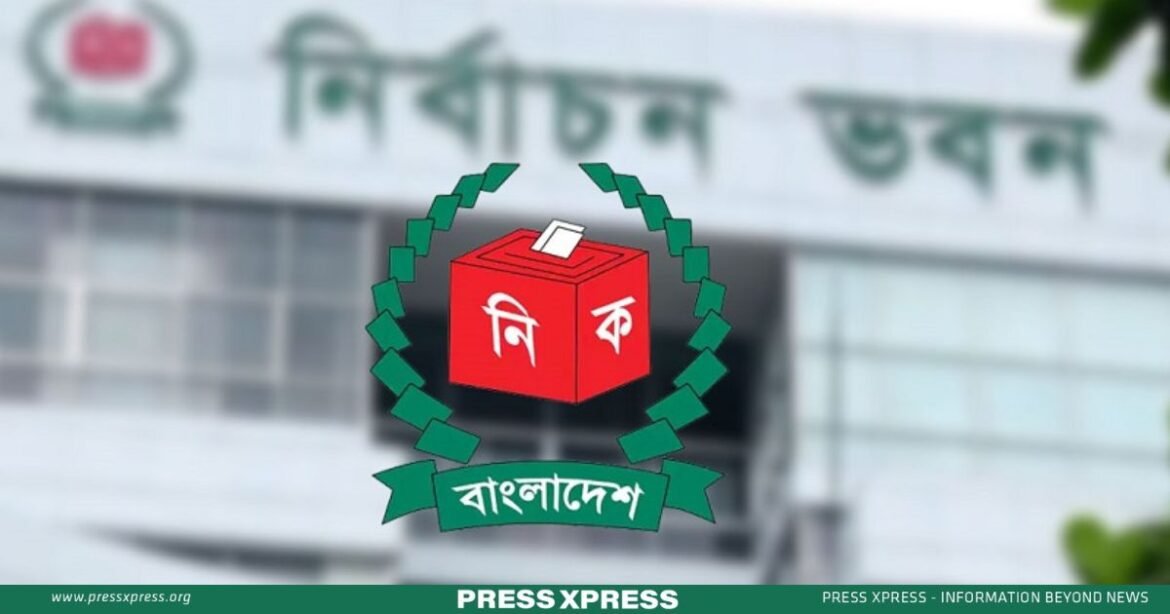Key highlights:
- The Chairman of the Human Rights Commission Dr Kamal Uddin emphasized, “Forcing someone to vote and preventing someone from voting are both violations of human rights.”
- The Election Commission has granted permission for 20,773 individuals from 84 organizations to monitor the national election.
- The applications for election observation have been received from various countries, including Thailand, Nepal, India, Britain, Canada and others.
- European Union confirmed that a team of technical experts will be observing the election.
In a recent statement given to journalists at the Election Building in Agargaon, Chief Election Commissioner Kazi Habibul Awal affirmed that there have been no substantial breaches of the election code of conduct, highlighting a lack of significant complaints from the field administration and candidates. While acknowledging isolated incidents of violence, clashes, and damaged posters, Awal noted that, overall, these occurrences appear to be minimal.Stressing the importance of a peaceful voting day, he emphasized the enforcement of law and order.
You can also read: Bangladesh Ready for Peaceful Elections Amid Opposition Incitement
Kazi Habibul Awal further mentioned that “Campaigning will cease at a specific juncture, leading to the arrival of the election day. Polling agents will be present, and safeguarding their integrity within the centers is imperative. The media capturing irregularities inside or outside the centers is encouraged, as it contributes to transparency in the election process, enhancing credibility and reducing the likelihood of misconceptions.”
Human Rights Emphasis and Mutual Trust Resounds in Election Discourse
Regarding the meeting with the Human Rights Commission, Kazi Habibul Awal underscored human rights issues during the election season. He highlighted that “The right to vote, be elected, and choose candidates are fundamental human rights. Co-operation between the Election Commission and the Human Rights Commission is sought, emphasizing the need to convey the non-violent nature of our political culture in conducting elections. Consistent efforts are necessary to achieve this goal.”
Expressing the view that there is minimal mutual trust among political parties, he emphasized the need for developing a culture of trust when candidates contest as representatives of opposing political parties.
Further addressing the media’s role, the Election Commissioner stated that the media’s focus should be substance-oriented. He pointed out that the media sometimes confuses people by selectively emphasizing certain aspects, underlining the importance of media responsibility.
At the conclusion of the meeting, the Chairman of the Human Rights Commission Dr Kamal Uddin accentuated, “Forcing someone to vote and preventing someone from voting are both violations of human rights. It is an individual’s choice whether or not to cast a vote.In this context, coercion should not be tolerated. Unjustly impeding someone who wishes to vote is inherently unfair. Even in the case of the BNP not participating, we remain hopeful that the election will be conducted impartially.”
20,773 Authorized to Monitor National Election from 84 Organizations
The Election Commission has granted permission for 20,773 individuals from 84 organizations to monitor the national election. On Thursday, the Director of Public Relations of the EC, SharifulAlam, verified this information to the media.
“Approval has been given for 20,256 individuals from 84 organizations to observe the election at the local level. Among these, 40 organizations will have 517 individuals centrally involved in election observation. Others have received approval from returning officers nationwide. Those with central approval are authorized to oversee polling in their selected constituencies across the country.”
He further mentioned, “The Election Commission formulated a policy for selecting local election observers in accordance with the Representation of the People Order.”
The registration of local observers was initiated ahead of the 9th parliamentary election in 2008.
Election Commission’s Global Outreach for Election Observation
Earlier, Shariful Alam shared that the applications for election observation have been received from various countries, including Thailand, Nepal, India, Britain, Canada, Australia, Sweden, the Netherlands, Iraq, Palestine, Georgia, Uganda, Norway, Bulgaria, and Congo.
Notably, journalists representing reputable outlets such as AFP, NDTV, The New York Times, Reuters, Associated Press India, Jiji Press-Japan, Swedish Radio, The National from the UAE, The Yomiuri Shimbun from Japan, and Junge Freiheit from Germany had expressed their interest in covering the upcoming election. In addition, one freelance journalist had also submitted an application.
Furthermore, the Election Commission had extended invitations to the election commissions of various countries, including India, Bhutan, the Maldives, Nepal, Sri Lanka, Australia, Canada, France, Georgia, Indonesia, Kazakhstan, Russia, South Korea, Egypt, Turkey, Uzbekistan, Argentina, Brazil, South Africa and other countries.
Invitations had also been sent to the secretaries-general of South Asian Association for Regional Cooperation(SAARC) and Organisation of Islamic Cooperation (OIC), as well as the chairpersons of Forum of Election Management Bodies of South Asia(FEMBoSA) and A-WEB.
Noteworthy is the European Union’s confirmation that a team of technical experts will be observing the election, with four members of this team already present in the country.
Within the complex weave of democracy, where voting is a foundational human right with repercussions that transcend boundaries, the imperative collective duty to uphold fairness and credibility takes center stage. As the impending election day draws near, it heralds not merely a political spectacle but a reaffirmation of democracy’s endurance and the joint dedication to an open, serene, and unbiased electoral undertaking.


